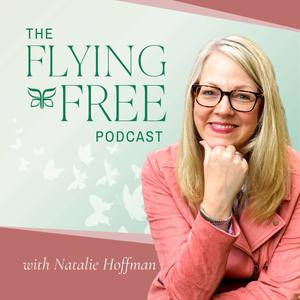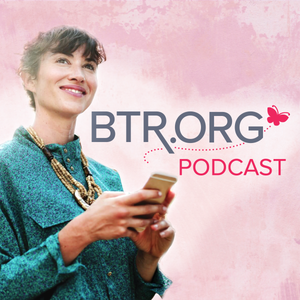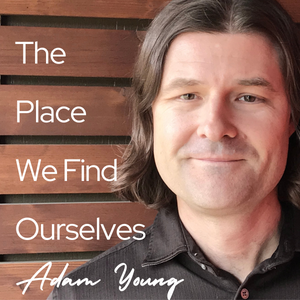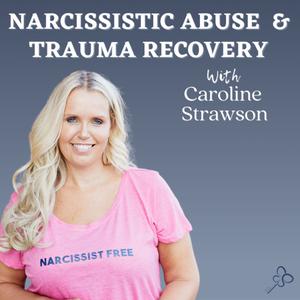
Flying Free
Natalie Hoffman
Flying Free is a support resource for women of faith who need hope and healing from hidden emotional abuse, spiritual abuse, and narcissistic abuse.
- 57 minutes 48 secondsReading the Bible as a Survivor [313]
In this thought-provoking episode of the Flying Free Podcast, I sit down with author and essayist Liz Charlotte Grant to explore the complexities of faith, scripture, and healing after spiritual trauma. Liz’s debut book, Knock at the Sky, delves into the questions many of us grapple with during deconstruction and offers an artistic, fresh approach to reading the Bible.
If you’ve ever felt disillusioned by literal interpretations of scripture or struggled to reconcile the Bible with the harm inflicted by its misuse, this episode is for you.
Key Takeaways:- Faith as a Journey, Not a Destination
- Liz encourages listeners to embrace uncertainty and approach the Bible with curiosity rather than fear.
- Faith isn't about having all the answers; it's about walking into the unknown with Jesus as your anchor.
- Permission to Wrestle and Question
- Deconstruction doesn’t signal a loss of faith but rather an act of trust. Asking questions shows a desire for authenticity in our relationship with God.
- Survivor-Centric Bible Reading
- Survivors of spiritual abuse can reclaim agency by approaching scripture in ways that feel safe and healing. It’s okay to prioritize certain passages while setting others aside.
- Diverse Perspectives Enrich Understanding
- Liz emphasizes the value of exploring interpretations from scholars across cultures and disciplines to deepen our understanding of scripture.
Read the show notes and/or ask Natalie a question here
Related Resources:
- Liz Charlotte Grant’s book: Knock at the Sky: Seeking God in Genesis After Losing Faith in the Bible
- Liz Charlotte’s website: lizcharlottegrant.com
- Follow Liz Charlotte on Instagram
- Recommended episodes: Episode 283, “A Closer Look at Spiritual Abuse,” and Episode 291, “The Deconstruction Books That Have Changed and Healed My Relationship with God.”
Liz Charlotte Grant is an award-winning essayist whose first book, Knock at the Sky: Seeking God in Genesis After Losing Faith in the Bible, released in January 2025. She explores a wide range of ideas in her writing, including exploring the heartbreak of Elisabeth Elliot's third marriage, her own surprise disability, and the discovery of dark matter.
4 February 2025, 6:30 pm - Faith as a Journey, Not a Destination
- 1 hour 5 minutesParallel Parenting Part Two [312]
In today’s episode, we’re continuing my conversation with life coach Diana Swillinger on parallel parenting. We’re diving into some of the tough questions you’ve sent in, like how to manage parallel parenting without falling into parental alienation, what to do when parenting styles and rules differ across homes, and how to handle situations where your kids prefer one parent and refuse to visit the other.
We also talk about creating emergency plans to keep your children safe—both emotionally and physically. Whether you’re separated, divorced, or just trying to navigate a difficult co-parenting situation, this episode is full of insights to help you create a healthy, stable parenting environment for your kids.Read the show notes and/or ask Natalie a question here
Related Resources:- Missed last week’s episode? Don’t worry! We introduced the basics of parallel parenting in Episode 311.
- Check out Diana Swillinger’s podcast, The Renew Your Mind Podcast for more on healing and emotional growth. I recommend episodes like “Staying Out of Family Drama.” and “Accepting What Is.”
- Check out Diana’s website.
- Follow Diana on Facebook and Instagram.
- You might also be interested in listening to Episode 233. In this episode, Jessica Nagy shares practical techniques for helping your kids regulate their emotions and build resilience. Learn how to support your children, co-regulate alongside them, and model healing so they can thrive despite the challenges of having a harmful parent.
Diana Swillinger is a life and business coach, host of The Renew Your Mind Podcast, and founder of the Renew Your Mind Institute Coach Training. After decades of trying please God, be a good person and do the right thing, she ended up exhausted and discouraged. Desperate for a solution, Diana went back to school, joined personal development programs, and more, then took what she learned and created mind renewal tools that let her love life in every situation no matter what comes her way. Over the past 5 years she has empowered thousands of women with those same tools to heal themselves, get back to who God created them to be, and build a life they love.
28 January 2025, 6:30 pm - 42 minutes 28 secondsParallel Parenting Part One [311]
In today’s episode, we’re diving into the topic of parallel parenting—what it means, why it matters, and how it can empower you as a mother to create a home filled with love and stability, even when co-parenting feels like a battlefield.
We explore how to rise above emotional manipulation, operate from a place of peace and truth, and model resilience for your children. Whether you’re navigating parallel parenting or seeking emotional clarity, this episode is full of practical wisdom and hope.
Read the show notes and/or ask Natalie a question hereRelated Resources:
- Love Diana? We have another episode with her here: The Importance of Empathy for Yourself.
- Check out Diana’s website.
- Follow Diana’s podcast, The Renew Your Mind Podcast. Some of her best episodes include “Staying Out of Family Drama,” “Have To Vs. Choose To,” “When People Are Wrong About You,” “When People Are Right About You,” and “Accepting What Is.”
- Follow Diana on Facebook and Instagram.
- Are you in emotionally and spiritually abusive relationship? You might want to also listen to this episode: Are You Married to a Quiet Covert Abuser with a Hidden Lifestyle?
- Are you wondering what is happening inside your own painful and confusing marriage? I wrote a book just for you called Is It Me? Making Sense of Your Confusing Marriage: A Christian Woman’s Guide to Hidden Emotional and Spiritual Abuse.
- My book, All the Scary Little Gods, is a spiritual memoir about healing from religious trauma and toxic programming.
- Flying Free is our online community educating and supporting Christian women in emotionally abusive marriages. Whether you want to stay in your marriage or leave, we want to equip you through this program.
- Flying Higher is my live mentorship program for any Christian woman interested in 10Xing their self-development progress.
Diana Swillinger is a life and business coach, host of The Renew Your Mind Podcast, and founder of the Renew Your Mind Institute Coach Training. After decades of trying please God, be a good person and do the right thing, she ended up exhausted and discouraged. Desperate for a solution, Diana went back to school, joined personal development programs, and more, then took what she learned and created mind renewal tools that let her love life in every situation no matter what comes her way. Over the past 5 year she has empowered thousands of women with those same tools to heal themselves, get back to who God created them to be, and build a life they love.
21 January 2025, 6:30 pm - 7 minutes 32 secondsWho Can You Trust? A Flying Higher Moment 009
Trust is complicated—especially after experiencing disappointment or hurt. Is it possible to fully trust anyone? What does it take to build trust, and where should it start? In this episode, we explore these questions, challenge common assumptions about trust, and share a fresh perspective on building stronger, healthier relationships.
You won’t want to miss this episode—it might just change the way you think about trust forever.
Would you like to be part of my live mentorship program, Flying Higher? Head over HERE to learn more!
18 January 2025, 7:00 am - 35 minutes 12 secondsWhat if My Abusive Husband Has Mental Health Issues? [310]
What if my abusive husband has mental health issues? Drawing on listener input, I tackle the complexities of abuse intertwined with mental health diagnoses such as bipolar disorder, ADHD, anxiety, and depression. I want to help you navigate the tricky waters of understanding biblical interpretations around staying in abusive relationships “in sickness and in health.” This episode is a lifeline for women seeking clarity and peace while healing and growing within difficult circumstances.
What You’ll Learn in This Episode:- Why anger and critical thinking are normal, healthy responses to injustice.
- How to unhook from shaming tactics used by abusers and others.
- The importance of stewarding your own mental, physical, and spiritual health.
- A biblical perspective on “in sickness and in health” in the context of abusive relationships.
- Why it’s not helpful to focus on parsing out mental illness vs. abuse in relationships.
Read the show notes and/or ask Natalie a question here
Related Resources:- Are you wondering what is happening inside your own painful and confusing marriage? I wrote a book just for you called Is It Me? Making Sense of Your Confusing Marriage: A Christian Woman’s Guide to Hidden Emotional and Spiritual Abuse.
- My book, All the Scary Little Gods, is a spiritual memoir about healing from religious trauma and toxic programming.
- Flying Free is our online community educating and supporting Christian women in emotionally abusive marriages. Whether you want to stay in your marriage or leave, we want to equip you through this program.
- Flying Higher is my live mentorship program for any Christian woman interested in 10Xing their self-development progress.
14 January 2025, 6:30 pm - 10 minutes 41 secondsThis Moment is Your Gift—Unwrap It! A Flying Higher Moment 008
I'm watching my babies go from being children to being young men, and I gotta be honest, it's making me sadder than I've been in a long time. In this Flying Higher moment I'll share a new thought I had this morning as I watched my 14-year-old in the kitchen. A thought that helped create a deeper shift within me from sadness to joy. Maybe it will help you as much as it helped me.
Need a mentor this year? Go to joinflyinghigher.com to learn more!
11 January 2025, 7:00 am - 54 minutes 29 secondsThe Importance of Empathy for Yourself [309]
Today I visit with Diana Swillinger, a life coach and fellow advocate for personal growth and healing. Together, we explore the profound role of empathy—not just for others but for yourself—in overcoming life’s challenges and moving forward.
Key Topics Covered:
- The role of empathy in healing
- Personal responsibility vs. victim-blaming
- The difference between needing validation and needing empowerment
- The importance of challenging our deeply rooted beliefs
- A powerful tool for growth
- Building a life aligned with the heart of God
Read the show notes and/or ask Natalie a question here
Related Resources:- Love Diana? Listen to Episode 256 of the Flying Free Podcast to get more of her!
- Check out Diana’s website.
- Follow Diana’s podcast, The Renew Your Mind Podcast. Some of her best episodes include “Staying Out of Family Drama,” “Have To Vs. Choose To,” “When People Are Wrong About You,” “When People Are Right About You,” and “Accepting What Is.”
- Follow Diana on Facebook and Instagram.
- Listen to the episode on victim blaming that I mentioned in today’s show.
- Are you wondering what is happening inside your own painful and confusing marriage? I wrote a book just for you called Is It Me? Making Sense of Your Confusing Marriage: A Christian Woman’s Guide to Hidden Emotional and Spiritual Abuse.
- My book, All the Scary Little Gods, is a spiritual memoir about healing from religious trauma and toxic programming.
- Flying Free is our online community educating and supporting Christian women in emotionally abusive marriages. Whether you want to stay in your marriage or leave, we want to equip you through this program.
- Flying Higher is my live mentorship program for any Christian woman interested in 10Xing their self-development progress.
Diana Swillinger is a life and business coach, host of The Renew Your Mind Podcast, and founder of the Renew Your Mind Institute Coach Training. After decades of trying please God, be a good person and do the right thing, she ended up exhausted and discouraged. Desperate for a solution, Diana went back to school, joined personal development programs, and more, then took what she learned and created mind renewal tools that let her love life in every situation no matter what comes her way. Over the past 5 year she has empowered thousands of women with those same tools to heal themselves, get back to who God created them to be, and build a life they love.
7 January 2025, 6:30 pm - 12 minutes 24 secondsA Two-Word Exercise to Shift Your World in 2025: A Flying Higher Moment 007
This week's Flying Higher moment introduces a simple exercise that will help you discover core beliefs that are keeping you stuck. You'll also learn how to quickly create a shift in your body that will give you just enough energy to regain some power and control in your life. It's a powerful exercise to try right at the beginning of 2025!
Links mentioned:
Try Flying Free one week for one dollar now through January 5, 2025 - Click HERE
Flying Free
Flying Higher4 January 2025, 7:00 am - 32 minutes 6 secondsWhat One Year Can Do in the Life of a Woman [308]
In today’s episode, I reflect on the incredible transformations that can happen in just one year. (That’s not a very long time, when you think about it! I feel like every January, I blink, and it’s December!)
Through powerful testimonials from Christian women, I highlight the courage, growth, and healing that come in just one year of taking intentional steps to break free from abuse, rebuild a life of freedom, and pursue self-development.
Discover how these women overcame fear, anxiety, and self-doubt to embrace healing, reclaim their identities, and create lives full of purpose and joy. Whether you’re navigating the complexities of divorce, overcoming spiritual abuse, or simply seeking personal growth, this episode will encourage you to imagine your own transformation in the coming year.
What You’ll Hear in This Episode:- Heartfelt stories of resilience and transformation from Christian women just like you.
- Reflections on recognizing abuse, setting boundaries, and finding freedom.
- Insights into rebuilding relationships with God, children, and oneself after abuse.
- An invitation to intentionally plan for growth and healing in 2025
Read the show notes and/or ask Natalie a question here
Related Resources:- Grab your own butterfly planner for 2025 (and consider joining us in Flying Higher if you want to go through the Wings to Soar planning workshop with me in January 2025!)
- Listen to the episode mentioned in today’s show, Episode 197, about all of our different parts and how they interact on our bus!
- Are you wondering what is happening inside your own painful and confusing marriage? I wrote a book just for you called Is It Me? Making Sense of Your Confusing Marriage: A Christian Woman’s Guide to Hidden Emotional and Spiritual Abuse.
- My book, All the Scary Little Gods, is a spiritual memoir about healing from religious trauma and toxic programming.
- Flying Free is our online community educating and supporting Christian women in emotionally abusive marriages. Whether you want to stay in your marriage or leave, we want to equip you through this program.
- Flying Higher is my live mentorship program for any Christian woman interested in 10Xing their self-development progress.
1 January 2025, 6:05 am - 13 minutes 8 secondsFaith or Fear? A Flying Higher Moment 006
Do you ever wonder if you're measuring up to God's standard? If you're good enough to win God's attention and help? If you've done enough to make your life really matter?
If you're looking for a little hope, joy, and maybe even a restored connection to God’s original design for humanity, I invite you to listen in to today's Flying Higher moment and embrace the possibility of a deeper faith journey rooted in love instead of manipulation and shame.
Resources mentioned:
Flying Higher
The Mirror Bible28 December 2024, 8:00 am - 15 minutesWhen Christmas Doesn't Smell Like You Expected [307]
Hi friends, and Merry Christmas! I hope this special day brings moments of peace and reflection, wherever you are and whatever you’re doing. In this solo episode, I reflect on the powerful connection between scent, memory, and emotion—especially during the holiday season. I’ll share personal stories, including my years as a soap maker, and how the fragrances of Christmas invite us to reflect on our own environments and experiences.
We’ll explore what it means to find hope and healing in unexpected circumstances and how the true spirit of Christmas can create a lasting fragrance of love, even in challenging seasons.
What You'll Learn in This Episode:- How our senses connect to our memories and emotions.
- Why we can grow numb to unhealthy environments.
- A reflection on religious attitudes and how they impact others,
- The hope and beauty found in embracing life as it is, not as we expected.
Read the show notes and/or ask Natalie a question here
Related Resources:- Are you wondering what is happening inside your own painful and confusing marriage? I wrote a book just for you called Is It Me? Making Sense of Your Confusing Marriage: A Christian Woman’s Guide to Hidden Emotional and Spiritual Abuse. (The Kindle version is only $2.99 now through the end of the year!)
- My book, All the Scary Little Gods, is a spiritual memoir about healing from religious trauma and toxic programming. (Again - the Kindle version is only $2.99 now through the end of the year!)
- Flying Free is our online community educating and supporting Christian women in emotionally abusive marriages. Whether you want to stay in your marriage or leave, we want to equip you through this program.
- Flying Higher is my live mentorship program for any Christian woman interested in 10Xing their self-development progress.
24 December 2024, 6:30 pm - More Episodes? Get the App
Your feedback is valuable to us. Should you encounter any bugs, glitches, lack of functionality or other problems, please email us on [email protected] or join Moon.FM Telegram Group where you can talk directly to the dev team who are happy to answer any queries.
 The BTR.ORG Podcast - Betrayal Trauma Recovery
The BTR.ORG Podcast - Betrayal Trauma Recovery
 It’s Not Normal It’s Toxic: Rid Your Life of Toxic People
It’s Not Normal It’s Toxic: Rid Your Life of Toxic People
 The Place We Find Ourselves
The Place We Find Ourselves
 Bare Marriage
Bare Marriage
 The Christian Single Moms Podcast
The Christian Single Moms Podcast
 The Narcissistic Abuse & Trauma Recovery Podcast
The Narcissistic Abuse & Trauma Recovery Podcast